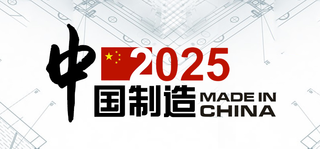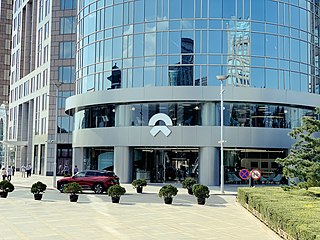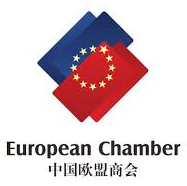
Amazon China, formerly known as Joyo.com, is an online shopping website. Joyo.com was founded in early 2000 by the Chinese entrepreneur Lei Jun in Beijing, China. The company primarily sold books and other media goods, shipping to customers nationwide. Joyo.com was renamed to “Amazon China” when sold to Amazon Inc in 2004 for US$75 Million. Amazon China closed its domestic business in China in June 2019, offering only products from sellers located overseas.

The United States Chamber of Commerce (USCC) is a business association advocacy group. It is the largest lobbying group in the United States. The group was founded in April 1912 out of local chambers of commerce at the urging of President William Howard Taft and his Secretary of Commerce and Labor Charles Nagel. It was Taft's belief that the "government needed to deal with a group that could speak with authority for the interests of business."

The economy of the European Union is the joint economy of the member states of the European Union (EU). It is the second largest economy in the world in nominal terms, after the United States, and the third largest at purchasing power parity (PPP), after China and the US. The European Union's GDP is estimated to be $19.40 trillion (nominal) in 2024 or $28.04 trillion (PPP), representing around one-sixth of the global economy. Germany has the biggest national GDP of all EU countries, followed by France and Italy. In 2022, the social welfare expenditure of the European Union (EU) as a whole was 27.2% of its GDP.

Alibaba Group Holding Limited, branded as Alibaba, is a Chinese multinational technology company specializing in e-commerce, retail, Internet, and technology. Founded on 28 June 1999 in Hangzhou, Zhejiang, the company provides consumer-to-consumer (C2C), business-to-consumer (B2C), and business-to-business (B2B) sales services via Chinese and global marketplaces, as well as local consumer, digital media and entertainment, logistics, and cloud computing services. It owns and operates a diverse portfolio of companies around the world in numerous business sectors.
The American Chamber of Commerce to the European Union (AmCham EU) is a Belgium-based committee of companies that lobbies in the European Union for US companies and companies with US business ties. It is a member of Amchams in Europe (ACE), an umbrella organization of related committees.
The digital economy is a portmanteau of digital computing and economy, and is an umbrella term that describes how traditional brick-and-mortar economic activities are being transformed by the Internet and World Wide Web technologies.

Guo Guangchang is a Chinese businessman and investor. He is the chairman and co-founder of Fosun International Limited, and a representative of the 12th Chinese People's Political Consultative Conference. As of July 2024, Forbes estimated his net worth was US$2.8 billion. According to Hurun Report's 2019 China Rich List he was the 45th richest person in China.

Tencent Holdings Ltd. is a Chinese multinational technology conglomerate and holding company headquartered in Shenzhen. It is one of the highest grossing multimedia companies in the world based on revenue. It is also the world's largest company in the video game industry based on its equity investments.

Payoneer Global Inc. is an American financial services company that provides online money transfer, digital payment services and provides customers with working capital.
Horasis is an independent, international think tank, headquartered in Zurich, Switzerland. Founded in 2005, by Frank-Jürgen Richter, former director of the World Economic Forum, Horasis is committed to fostering innovation and promoting the sustainable development of emerging markets. The annual Horasis Global Meeting in Cascais, Portugal, is a gathering of business people with government officials, scientists and intellectuals centered on issues concerning corporations and societies.

JD.com, Inc., also known as Jingdong, formerly called 360buy, is a Chinese e-commerce company headquartered in Beijing. It is one of the two massive B2C online retailers in China by transaction volume and revenue, and is a major competitor to Alibaba-run Tmall. With revenues more than US152.8 billion in 2023, JD.com is China’s largest retailer by revenue, and ranks 52 on Fortune Global 500. JD.com’s portfolio spans across retail, technology, logistics, health care, industrials, property management, private label, insurance, and international business.
The European Business and Technology Centre (EBTC) was constituted in 2008 as a programme co-funded by the European Union. It transitioned to an independent organisation in March 2016, continuing the EU mandate to facilitate Europe-India cross-border collaboration. EBTC as an organisation is coordinated by Eurochambres, the Association of European Chambers of Commerce and Industry.
Yangtze River Pharmaceutical Group is a Chinese multinational pharmaceutical corporation headquartered in Taizhou, Jiangsu Province in the People's Republic of China, and with its research headquarters in Shanghai. It is one of the Asia's largest pharmaceutical companies by revenues, and was listed in 2014 as being China's second largest pharmaceutical manufacturer, and leading company for technological and entrepreneurial innovation.

Made in China 2025 is a national strategic plan and industrial policy of the Chinese Communist Party (CCP) to further develop the manufacturing sector of China, issued by CCP general secretary Xi Jinping and Chinese Premier Li Keqiang's cabinet in May 2015. As part of the thirteenth and fourteenth five-year plans, China aims to move away from being the "world's factory"—a producer of cheap low-tech goods facilitated by lower labour costs and supply chain advantages. The industrial policy aims to upgrade the manufacturing capabilities of Chinese industries, growing from labor-intensive workshops into a more technology-intensive powerhouse with more value added.

Nio Inc. is a Chinese multinational automobile manufacturer headquartered in Shanghai, specializing in designing and developing electric vehicles. The company was established in 2014, and adopted its current name in 2016. In 2018, Nio filed for an initial public offering on the New York Stock Exchange. The company expanded its sales to the European market in 2021. As of 2023, Nio has two manufacturing plants in Hefei, Anhui Province, China, in collaboration with state-owned vehicle manufacturer JAC Group.

An economic conflict between China and the United States has been ongoing since January 2018, when U.S. President Donald Trump began setting tariffs and other trade barriers on China with the goal of forcing it to make changes to what the U.S. says are longstanding unfair trade practices and intellectual property theft. The first Trump administration stated that these practices may contribute to the U.S.–China trade deficit, and that the Chinese government requires transfer of American technology to China. In response to US trade measures, the Chinese government accused the Trump administration of engaging in nationalist protectionism and took retaliatory action. After the trade war escalated through 2019, in January 2020 the two sides reached a tense phase-one agreement. By the end of the Trump's first presidency, the trade war was widely characterized as a failure for the United States.
Big Tech, also known as the Tech Giants or Tech Titans, are the largest IT companies in the world. The concept of Big Tech is similar to the grouping of dominant companies in other sectors. It typically refers to the Big Five United States tech companies: Alphabet, Amazon, Apple, Meta, and Microsoft; or the Magnificent Seven, which includes Nvidia and Tesla. Big Tech can also include Chinese companies such as Baidu, Alibaba, Tencent, and Xiaomi (BATX).

The Foreign Investment Law is a law of the People's Republic of China governing foreign direct investment in China. The law was adopted by the National People's Congress on March 15, 2019, and came into effect on January 1, 2020. It replaces the Law of the People's Republic of China on Sino-Foreign Equity Joint Ventures, the Law of the People's Republic of China on Wholly Foreign-owned Enterprises, and the Law of the People's Republic of China on Sino-Foreign Cooperative Joint Ventures.
Many private companies have ceased operations in Russia or donated or matched donations to the Ukrainian government or Ukrainian organizations in response to Russia's seizure of Ukrainian territory in 2014 and 2022. Others have applied various sanctions.












